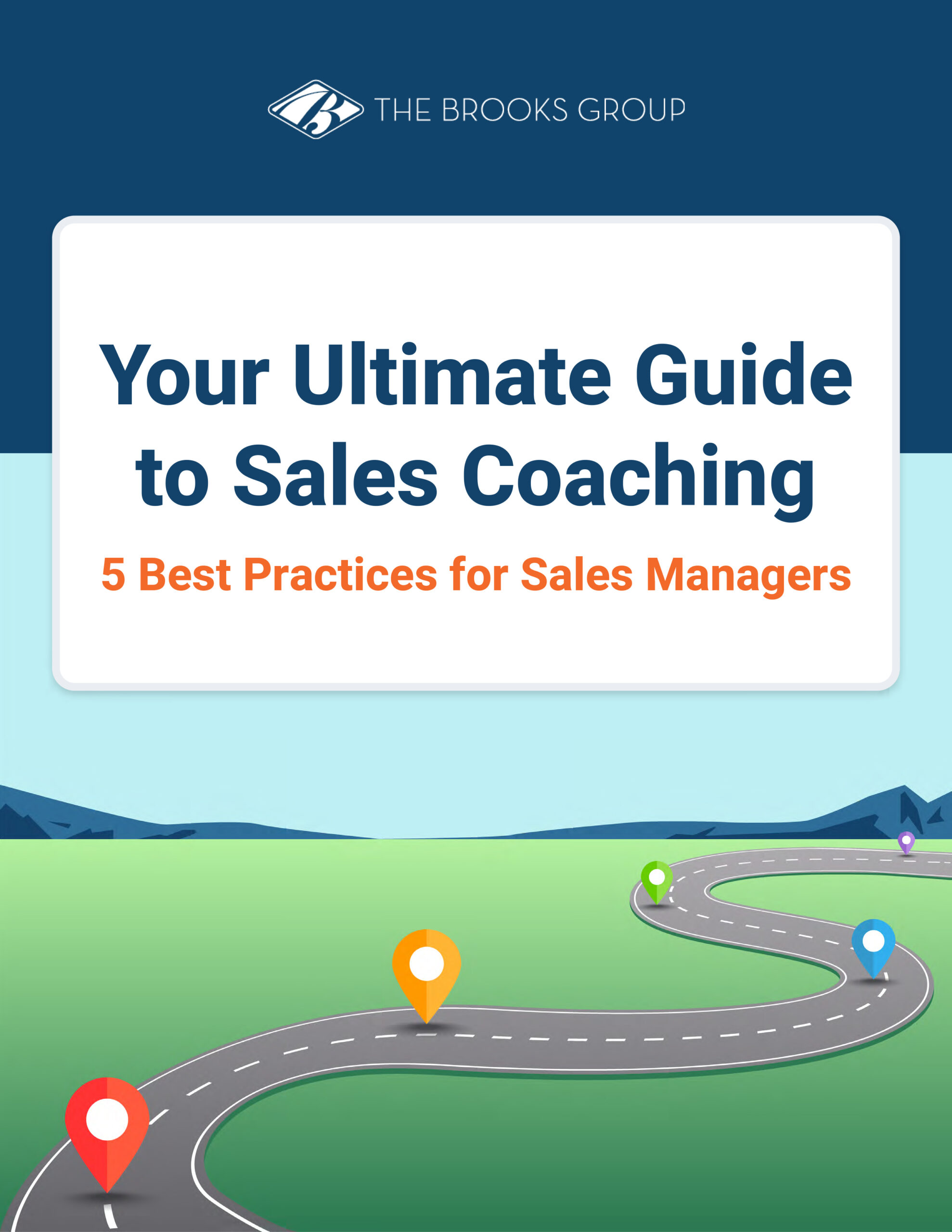Effective sales coaching can have a huge impact on your business. The biggest benefit of sales coaching is its contribution to revenue.
- Research shows that successful sales coaching programs increased average deal size, sales activity, win rates, and new leads by 25%-40%.
- Companies with a formal sales coaching strategy reach 91% quota attainment, on average.
Unfortunately, many sales leaders may be aware that their managers need to spend more time coaching, but formal programs tend to be poorly executed or non-existent.
Gartner research reveals that many organizations lack effective coaching.
- Only 40% of sales professionals report a well-established coaching culture at their organization.
- Just 42% say sales managers at their organization are actually held accountable for providing good coaching.
The takeaway is clear: organizations aiming for improved performance and revenue growth must invest in high-quality coaching, both in terms of quantity and quality.
In this guide, we’ll help you enhance your coaching practices by focusing on high-impact sales coaching activities. We’ll highlight five best practices that can significantly enhance your sales teams’ ability and willingness to perform at higher levels.
- Best Practice #1: Deliver Structured Evaluation and Feedback
- Best Practice #2: Develop Skills With One-on-One Meetings
- Best Practice #3: Build a Culture With Team Meetings
- Best Practice #4: Observe Sales Professionals in Action
- Best Practice #5: Create Career Roadmaps
Don’t have time to read the full post? Download it here to take with you.
What is Sales Coaching?
Sales coaching is the practice of evaluating and instructing sales professionals to improve productivity, reinforce sales skills, and ensure consistent performance and success.
Sales Coaching Best Practice #1: Deliver Structured Evaluation and Feedback
The core of effective sales coaching is evaluating behavior and providing feedback to improve performance. But, many sales professionals may feel some level of anxiety or defensiveness about being evaluated. No one likes to feel that their behavior is under scrutiny.
Follow these five recommendations to increase the likelihood your team will respond to your assessment and act on feedback in the field.
1. Anticipate nerves.
You can reduce the stress of being evaluated by reminding your team that these check-ins are for their individual development and success.
If you communicate that the purpose of your conversation is to help your team members grow and improve their skills, as opposed to inspecting them, they’ll welcome the opportunity instead of dreading it.
You can also alleviate any negative perception by letting your salespeople know you don’t want to completely change their style. The best coaching simply adjusts what they’re already doing to help make them more effective and to close more deals.
2. Structure feedback.
Instead of delivering feedback in a long, unprioritized list, group your observations in three chunks to make them more acceptable and actionable.
- Keep: Keep the feedback positive by starting out with three examples of things they are doing well and should keep on doing.
- Stop: Follow with one thing they should stop doing in order to increase their success.
- Start: End with one thing you recommend they start incorporating into their sales calls.
3. Focus on specifics.
Your sales professionals want coaching, but one of the common complaints about feedback is that it’s not in-depth or specific enough for them to take action on it. Many sales professionals don’t think their manager’s feedback helps them improve their sales skills.
To counteract this view, create a sales call evaluation form that covers the key selling competencies a sales professional needs to be successful in your specific sales environment. As with sales metrics, less is more, so keep it concise.
Focus on the top eight to ten competencies that create the highest gain and score their performance in each area with a numeric value. Assigning a number helps to ensure clarity and will help you prioritize the skills development and training needed. It also allows your salespeople to track their improvement over time.
When you deliver your feedback, focus on no more than three competencies at a time and provide specific suggestions. The clearer and more direct you can make your recommendations, the more likely they are to be applied.
4. Collaborate on the solution.
Your sales professionals would rather learn for themselves than be told what to do. They will be more willing to change their behavior if they have an active hand in the improvement plan.
Make the evaluation a collaborative process by asking questions that get to the root of the issue. You want your team to consider the logic behind their own behaviors. This added self-awareness will help them recognize and self-correct in the future.
Ask questions such as:
- How were you hoping the prospect would respond to your strategy?
- What could you have done differently to achieve your goal?
Use what you know about the sales professional’s style to come up with next steps. For example, if a salesperson has an assertive demeanor with a low level of empathy, one of their issues may be that they don’t let their prospects speak enough.
Talk through this challenge in light of their personality’s strengths and weaknesses. Once they connect how that part of their style directly affects their performance, they will be more aware of it in future situations and able to correct it.
5. Plan then execute.
As a coach, your role is to hold the sales professional accountable for following through on their commitment. Have your salesperson write out a plan of action after your evaluation and revisit the plan at your one-on-one meetings. Ownership will lead to better execution of the new strategy.
Sales Coaching Best Practice #2: Develop Sales Skills with One-on-One Meetings
A vital component of an effective sales coaching program is one-on-one meetings. Regular face-to-face check-ins with individual team members—either in person or virtual—are essential to find out what’s going well, what needs intervention, and what action steps should follow.
Follow these four tips for productive one-on-one sales meetings.
1. Set a regular cadence and stick to it.
One-on-one meetings are a critical component to motivating sales professionals and keeping them engaged. Use the time to provide support and encouragement. Make sure they understand the benefits of meeting.
When your calendar is overflowing, it’s tempting to push off your one-on-one meetings. But it’s vital to dedicate time to check in individually with each member of your team to ensure you can identify corrections or performance adjustments early.
Block out an hour weekly, bi-weekly, or monthly and stick to a regular cadence so the meetings become routine. The structure will help both parties prepare and take the meeting seriously. Getting into the habit will reduce the temptation to postpone or cancel—even when you’re swamped.
2. Develop, don’t inspect.
A meeting that is centered on a salesperson’s performance will naturally induce some level of anxiety and/or defensiveness. To ease that, don’t make the meeting an interrogation and avoid the temptation to do all the talking. This is their time to tell you what’s really going on, ask questions, and seek advice.
Try not to focus solely on numbers, but look for trends in what they’re doing well and where they can improve. Ask questions that help your sales professionals learn how to diagnose and solve the challenges they’re having on their own in the future.
Make sure the meetings feel important and beneficial to both you and the sales professional. Use this time as an opportunity to strategize, course correct, and move forward in the right direction.
3. Keep the meeting efficient.
A prepared agenda gives structure to the conversation and ensures every pressing issue is discussed. By following a format and covering the same items every meeting, salespeople will know exactly what to expect and be more comfortable.
Prepare your agenda ahead of time, but allow for an open forum to discuss needs and ideas. If you’re using a standard sales process you’ll be able to streamline conversations around opportunities and find out exactly how a deal is progressing by asking three simple questions:
- Which step of the sales process are you in?
- How qualified is the opportunity on a scale of 1-5?
- What’s your definitive next step?
4. End with an action plan.
A meeting that fails to define what success looks like and the action steps to get there is not an efficient use of anyone’s time. By holding one-on-one meetings regularly, you’ll be able to spot performance issues early.
But in order to save deals in trouble or rectify unproductive habits, you’ll need to deliver appropriate sales coaching—and make sure the sales professional acts on your recommendations.
Make it clear what kind of follow-up behaviors you expect, as well as how you’ll measure those improvements. Then, start the next meeting with a review of how they played out with the prospect.
You can keep the momentum going between meetings with quick calls or emails to see how new sales skills are developing, providing course correction as needed.
Frequent and open communication with your sales team is crucial to a healthy sales culture. Scheduling and sticking to regular one-on-one meetings is a great way to foster open communication and boost revenue.
Sales Coaching Best Practice #3: Build a Sales Culture with Team Meetings
Bringing the whole sales team together is another important coaching opportunity. It’s a time to recognize, educate, communicate, and motivate. But running an effective meeting is an art.
According to Atlassian:
- Employees spend 31 hours per month in unproductive meetings.
- 90% of average meeting goers admit to daydreaming.
- 73% are doing other work during that time.
Follow these four tips to make sure that your next sales team meeting is as productive as possible.
1. Set a structured agenda.
As with one-on-one meetings, establish a regular team meeting cadence to emphasize its importance, ensure everyone prepares properly, and set expectations.
Make your time together as efficient as possible by setting a clear agenda beforehand. While some of the topics will change week to week, your team should know the structure that you’ll adhere to.
For example, if meetings start promptly at 10:00 a.m. Monday mornings, begin with a recap of the previous week’s action steps, and end promptly at 11:00 a.m. A strict time frame keeps meetings on track and pushes the team to stay focused on the most pressing issues.
2. Make meetings interactive.
Sales meetings that force attendees to sit through classroom-style presentations aren’t any fun, and they aren’t very effective at improving performance either.
Make your team meetings interactive by getting input for the agenda from team members ahead of time—perhaps during one-to-one meetings. Share responsibility for meeting leadership. Designate team members as subject matter experts, and allow time for sharing successes.
Encouraging sales team members to share their own best practices not only improves camaraderie and builds a culture of trust, it benefits the rest of the team. Peer-to-peer knowledge sharing and collaboration will enrich everyone’s expertise and competence.
3. Encourage open and honest dialogue.
Most sales leaders claim that they have an open-door policy. But unless you truly create the space and opportunity for sales professionals to feel comfortable expressing frustrations and challenges, the vast majority aren’t going to take advantage of it.
Carve out time in your agenda for sales professionals to share issues and brainstorm solutions. Make it clear that this isn’t a time for complaints. It’s a time for team members to raise issues they want to work out within the framework of the meeting.
This will help increase open communication and reinforce the idea that you have your team’s best interests in mind. Addressing one issue may also solve or prevent others.
4. Create value for your team.
Your team meetings should provide a venue for learning, skill development, and motivation. If you’re just using them to discuss sales numbers and company updates, the team is likely to be less engaged.
To counteract this, include an educational aspect that your team will reap immediate benefit from. For example, if one of your sales professionals needs development with a certain skill, have them prepare and deliver a five-minute presentation at the next team meeting.
The research they put in will help them improve their own performance, and the rest of the team will benefit from the presentation. Be sure to follow up with a discussion that details how the rest of the team can apply what they’ve learned to current opportunities.
The key to an effective sales team meeting is to balance discussion of sales numbers with development opportunities. You want to motivate your sales professionals to push themselves toward higher performance, and give them the sales coaching they need to do so.
Sales Coaching Best Practice #4: Observe Sales Professionals in Action
There’s no substitute for seeing your sales professionals in action. Joint sales calls are an opportunity for a sales manager to observe behavior during a live-selling scenario. Today, a joint call can be in-person or virtual. Web conference software gives sales managers even more opportunities to join meetings and see their team in action. They can also be recorded, using tools like Gong, for future review and pinpointed coaching afterward.
These “ride-along” situations are critical to skill development because they allow you to see firsthand where to focus coaching. Sales professionals are more likely to incorporate feedback given during a ride-along because they’re able to connect it directly to their daily reality.
Follow these three tips to execute joint sales calls with the biggest impact.
1. Create a plan before the call.
As with sales calls themselves, the key to a successful joint sales call is proper preparation. In fact, this exercise reinforces the need for pre-call planning that sales professionals should do on a regular basis.
Have your salesperson create a plan that you can review and adjust if needed. It can be helpful to roleplay the appointment beforehand to align on purpose and roles.
The plan should provide the manager with the following information:
- Meeting attendees—Who are we calling? Is it a decision maker? Is this a preliminary meeting with an influencer? Look up each participant’s LinkedIn profile and get familiar with their interests and role.
- Purpose and outcome—What is the purpose of the meeting? The sales professional and manager should be clear on the prospect’s desired outcome and prepare discovery questions and ideas. The larger the opportunity, the more detail that is required.
- Manager’s role on the call—This will vary depending on the customer, salesperson, or purpose of the call but it needs to be clarified before the call takes place to eliminate any awkwardness.
2. Resist the urge to take over.
You may be tempted to step in to course correct during the call, but sales managers who take over the meeting not only frustrate and demotivate their sales professionals – they rob them of valuable learning opportunities. Swooping in too often creates dependency rather than enablement.
A manager’s purpose on a joint sales call is to position the sales professional to succeed in front of the prospect or customer. If intervention is absolutely necessary, approach it in a way that presents a learning opportunity.
For example, if your salesperson skips ahead without clarifying the decision-making process, interject in a way that contributes to the dialogue, without taking over. Say something diplomatic like, “I may have missed this in the conversation. Can you walk us through the typical process for deciding on something like this?”
3. Provide actionable feedback.
Joint sales calls provide a chance for the most influential coaching because they don’t require the salesperson to translate hypothetical scenarios into real life situations. Sales managers can see exactly where coaching needs to be directed, and deliver it with a highly relevant reference.
The level of your salesperson’s performance improvement hinges on the post-call debrief and how you deliver your feedback. Use this sample joint call audit (or one you create) to evaluate how the salesperson performed within each step of the sales process.
You can use this information to gauge where improvements are needed and to craft a coaching plan focused on one or two items at a time.
Great salespeople crave direction from their leaders, but hearing you need to change everything all at once can be discouraging. Feedback that helps someone make small adjustments or that steers them in the right direction will motivate the most. Give your feedback in actionable, bite-sized chunks.
Sales Coaching Best Practice #5: Create Career Roadmaps
The last best practice of effective sales coaching is making time to discuss your sales professionals’ personal and professional goals to create a roadmap for reaching them.
Learning and growth opportunities are one of the top three factors employees look for in a new role. Top sales performers want to develop their skills and tend to seek upward mobility.
Organizations that want to attract and retain sales talent must be very intentional in how they plan and communicate career development.
Follow these four tips to make sure your sales professionals know you’re invested in their career development—both inside your organization and beyond.
1. Understand every team member’s goals.
Your sales professionals aren’t just employees, they’re human beings. If you want to connect with and coach them in the most effective way possible, you need a deep understanding of who they are on a basic level—their underlying motivators, values, learning style, and communication preferences. Using tests such as the DISC assessment is invaluable for revealing your team members’ styles.
Where do they prefer to spend their energy, time, and money? Do they have any passions or interests that you can align with their career path?
Incorporating personal assessments into your talent management strategy gives you access to this information and allows you to tailor your coaching style to match their unique needs. You can get a better idea of which path is best suited for a sales professional once you understand what drives them.
2. Create short and long-term plans.
Meet with your team members individually to discuss their career objectives and develop a plan to track progress. Talk over how they plan to reach their current goals by leveraging their talents more effectively, as well as how they can prepare for potential future roles.
Collaborating on the career plan increases a sales professional’s commitment to it. Having something concrete to measure against helps to guide their development efforts.
Ask questions to gauge where they need coaching attention, such as:
“Where do you see yourself in the company next year?”
“The next step in your career here would be _____. What do you feel you need to work on before being ready for that position?”
Within his book Drive: The Surprising Truth About What Motivates Us, Daniel Pink writes that people are already intrinsically motivated toward mastery, self-direction, and purpose. You just need a road map for helping them get there.
3. Promote open communication.
People respond if you take a genuine interest in their future. When the manager initiates career discussions, a salesperson can see that the organization is committed to their development and is much more likely to open up.
You can foster open communication by taking an interest in your team’s personal lives on a regular basis, and sharing a little of your own. One suggestion is to open your sales team meetings with a weekly “headlines” update.
Allow each salesperson to share one personal headline (fishing trip, daughter’s graduation, vacation plans, etc.) and one professional headline (positive client meeting, positive deal progression, strong referral, etc.). This will create camaraderie and a more humane work environment.
Effective professional development is tied closely to motivation levels. Establishing personal connections and open communication increases loyalty and a salesperson’s drive to excel within your organization.
4. Walk the talk.
Top sales performers want to develop their skills and progress their career. Branding your company as a place that provides ample growth and developmental opportunities will help to attract and keep the talent you’re looking for.
Career development plans don’t have to be elaborate or costly—they simply require the intentional effort of sales leaders to understand their people and to guide them to succeed on the path that is best for them.
Grow Your Business with Sales Coaching
Use these sales coaching best practices to deliver coaching that increases your sales performance, improves retention, and enhances your bottom line.
How you leverage effective sales coaching techniques can make or break sales performance, so now is the time to invest.
Contact us at The Brooks Group to level-up your company’s sales coaching efforts.
White Paper Download
Your Ultimate Guide to Sales Coaching
Effective sales coaching can have a huge impact on your business, especially in it’s contribution to revenue. Download this ultimate guide to enhance your coaching practices by focusing on high-impact sales coaching activities.





